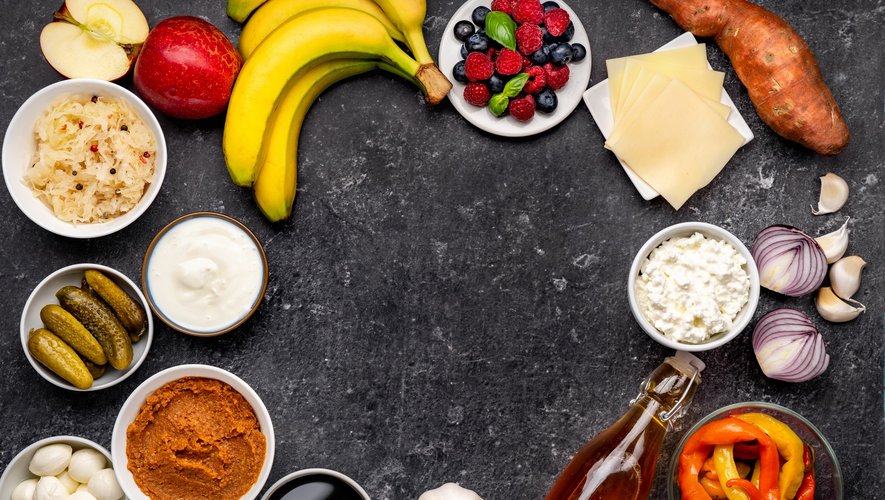Our digestive tract contains a set of microorganisms that make up our gut microbiota. It plays a role in digestive, metabolic, immune and neurological functions. Food is essential to maintain balance. So what do you need to eat for that?
Composed of bacteria, viruses, parasites and non-pathogenic fungi, our intestinal microbiota is sensitive to our diet. This must be diversified and balanced. But not only. Some foods are particularly involved in maintaining a healthy microbiota. Here are 5 examples.
Soluble fibers
These have the function of feeding the good bacteria. You’ll find them in fruits and vegetables, especially citrus fruits, potatoes, carrots, pear, asparagus, grapes, berries, and artichokes.
Certain dairy products
Among the cheeses, Gruyère, Cantal, Munster, Camembert and Roquefort are a good source of bacteria necessary for the proper functioning of our microbiota. A study published in 2019 showed in particular that the varied consumption of cheese from the age of 18 months reduced the risk of food allergy and atopic dermatitis at 6 years of age. We now know that the intestinal microbiota plays an important role in the functioning of the immune system and therefore the occurrence of allergies. Which are signs of disruption of this same system.
Honey
Its antibacterial function makes it possible to rebalance the intestinal flora by driving out undesirable bacterial agents. “It is also a powerful natural antioxidant that can stimulate the production of large numbers of good quality bacteria”specifies the PiLeJe laboratory. “It also promotes the functioning of antibodies which are the best allies to eliminate viruses and bad germs that could cause disease.”
Some bulb plants
Like for example ginger as well as garlic, onion and leek, contain probiotics. These live microorganisms complement the microbiota in a beneficial way.
fermented foods
Soy sauce, miso, kefir or even kombucha also contain bacteria that are favorable for the microbiota. To verify that the bacteria present in these products were well established in the intestine, a study published in the journal Cell in 2021 “subjected 18 people to a diet composed of this type of food for 10 weeks”, describes the website of the Association Que Choisir. “ At the end, the analysis of their microbiota showed a diversification: it was enriched with new species.” And the more, the better.

